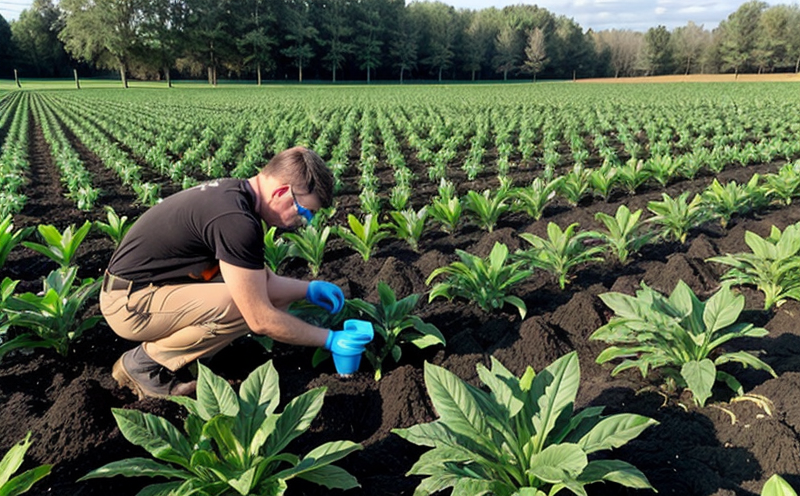Fertilizer Decomposition Testing
In agriculture and forestry, the quality of fertilizers is paramount to achieving optimal crop yields. Fertilizer decomposition testing plays a crucial role in ensuring that the nutrients remain effective throughout their intended application period. This service involves assessing how quickly or slowly various components within a fertilizer degrade under specific environmental conditions.
The decomposition process can significantly affect the availability and duration of nutrient release, which directly impacts plant growth and overall agricultural productivity. By understanding the rate at which fertilizers decompose, farmers and researchers can make informed decisions about application timing and dosage, leading to more efficient use of resources.
This testing is particularly important for complex fertilizers containing multiple nutrients like nitrogen (N), phosphorus (P), potassium (K), sulfur (S), calcium (Ca), magnesium (Mg), iron (Fe), manganese (Mn), zinc (Zn), copper (Cu), and boron (B). Decomposition tests help determine the stability of these elements, ensuring they are released in a manner that supports sustainable agricultural practices.
The testing typically involves exposing samples to controlled environments simulating real-world conditions such as temperature, humidity, light exposure, and soil composition. The decomposition process is monitored over time using various analytical techniques including gravimetric analysis, infrared spectroscopy (IR), nuclear magnetic resonance (NMR) spectroscopy, and atomic absorption spectrophotometry.
Accurate testing results are essential for several reasons:
- To ensure compliance with international standards such as ISO 17254:2016 and ASTM D839-19.
- To optimize fertilizer formulations to enhance their performance in various soil types.
- To improve the environmental impact by reducing runoff and leaching of nutrients into water bodies.
Understanding decomposition rates also aids in developing more sustainable agricultural practices, aligning with global efforts towards reducing waste and promoting ecological balance. This knowledge is invaluable for R&D engineers looking to innovate new formulations that offer extended efficacy while minimizing environmental footprint.
For quality managers and procurement officers, reliable decomposition testing ensures consistent product quality across batches, safeguarding both business reputation and customer satisfaction.
Benefits
- Enhanced Crop Yield: Optimized nutrient release leads to healthier plants and higher yields.
- Sustainable Agriculture: By understanding decomposition rates, farmers can use fertilizers more efficiently, reducing waste and environmental impact.
- Regulatory Compliance: Ensures that products meet international standards like ISO 17254:2016 and ASTM D839-19.
- Innovation: Provides insights for developing new formulations with improved performance characteristics.
Competitive Advantage and Market Impact
- Market Leadership: Offers a competitive edge by providing accurate and timely data on fertilizer stability, helping to maintain or even exceed market standards.
- Innovation Opportunities: Encourages continuous improvement in product formulations, contributing positively to the company's reputation for quality and innovation.
The ability to accurately predict decomposition rates not only enhances the performance of fertilizers but also contributes significantly to the broader agricultural sector. By offering this service, we support sustainable practices that benefit both producers and consumers alike.
Use Cases and Application Examples
| Use Case | Description |
|---|---|
| Crop Optimization: | Determining the optimal application rate of a fertilizer based on its decomposition characteristics. |
| Sustainable Farming: | Identifying fertilizers that minimize environmental impact through controlled nutrient release. |
| New Formulation Development: | Evaluating new fertilizer blends to determine their stability and effectiveness over different soil types. |
| Regulatory Compliance: | Ensuring that all fertilizers meet stringent international standards like ISO 17254:2016 and ASTM D839-19. |
| Educational Purposes: | Providing educational resources for students, researchers, and professionals interested in agricultural chemistry. |





